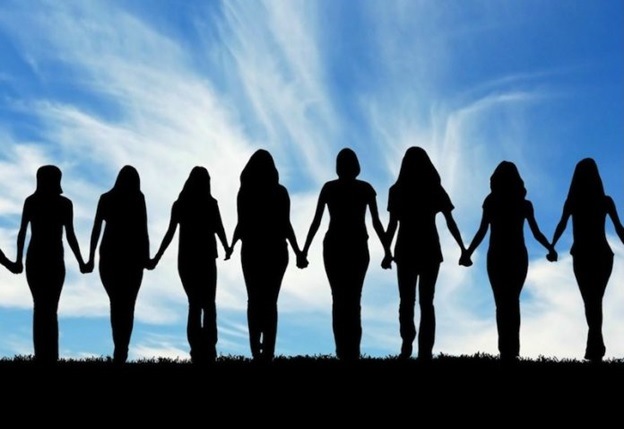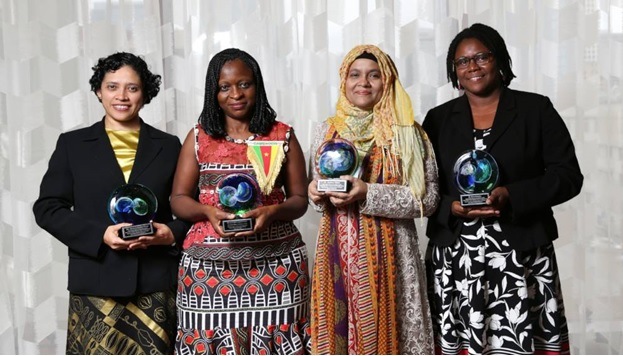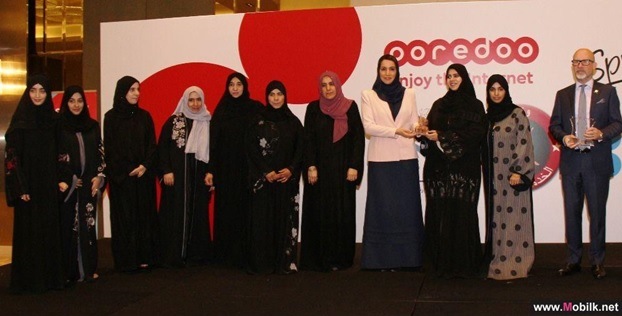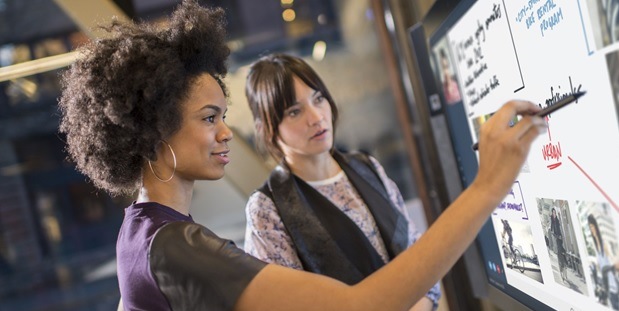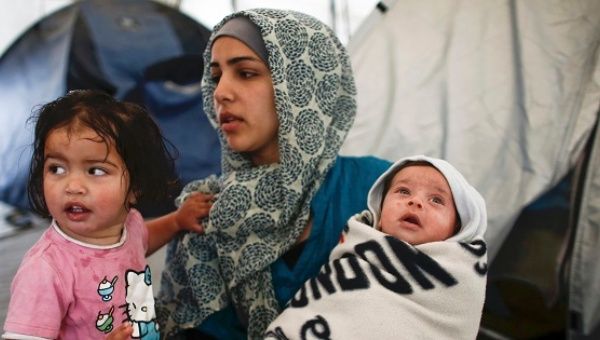A NEW initiative started by three friends living in Cyprus is offering help and support to women of all nationalities facing difficult situations. Although ‘WomenSupportCyprus’ started only a month or so ago, the three women have already helped seven women coping with a range of problems, of all different nationalities, including Moroccan, Russian and Ukrainian. “Women living here, especially foreign women, can face a range of problems. The women we have spoken to have been abused, have a husband that is a drug addict, or one that threatens to take away the children, and in some cases, children are being taken and kept from the mother, seemingly without any legal recourse,” one of the trio, Ukrainian, Natacha Butenko, told the Cyprus Mail.
Elsevier Foundation Awards Female Scientists – International Prize for Research
Five women scientists from the developing world have been awarded an international prize for research that promotes socio-economic development and a better quality of life. The awards; a partnership between the Elsevier Foundation and the Organization for Women in Science for the Developing World (OWSD), were presented at the annual meeting of the American Association for the Advancement of Science (AAAS), which took place in Austin, Texas this month (15-19 February). Hasibun Naher from Bangladesh, Germaine Djuidje Kenmoe from Cameroon, Silvia González Pérez from Ecuador, Dawn Iona Fox from Guyana and Witri Wahyu Lestari from Indonesia each received a US$5,000 cash prize for their work. Naher was recognized for her work on computer simulation of tsunamis; Djuidje Kenmoe for the study of molecular friction-and-wear for improving energy efficiency; González Pérez for molecular modelling of new sustainable materials; Fox for work on converting waste into materials with added value; and Lestari for her research on the synthesis of metal-organic frameworks for various applications in medicine or environmental protection.
Brazilian women say ‘No Means No’ at carnival
“No means no” is a new battle cry for Brazilian women mobilizing against assault at carnival, a raucous party whose free-wheeling atmosphere leaves women particularly vulnerable to unwanted sexual contact. In the wake of the Harvey Weinstein episode that triggered the #MeToo campaign against harassment in the United States, Brazilian women are out in full force with some, even sporting temporary tattoos with the message emblazoned across their shoulders, arms and chests. Rio’s carnival, the world’s largest, falls during the city’s pre-Lenten blowout which draws millions of near-naked revelers dancing as the alcohol flows, and flows. The feast of excess is also often the backdrop for a slew of sexual assaults, particularly against women. Luka Borges therefore is tirelessly distributing the temporary “No Means No” tattoos as part of a street parade known as a “bloco”(A bloco is a street party. organized by a suburb or carnival association)set to samba tunes in…
THE OOREDOO SCHEME GRADUATES 16 WOMEN
Under the patronage of HH Sayyida Aliya bint Thuwaini al Said, Ooredoo announced the graduation of 16 trainees from its Incubator Programme during the ‘Omani Night for My Country’ festivities. Organized in collaboration with the Omani Women’s Association in Manah, the vocational course taught women to develop essential skills in sewing and cooking. By contributing much-needed access to resources, tools, training, and funds, Ooredoo was able to empower women to start their own businesses. Raed Mohammed Dawood, director of Government Relations and Corporate Affairs at Ooredoo, said, “Omani women make up half of the workforce in the sultanate and play a vital role in the progress of our country. At Ooredoo we do our best to help women progress by enhancing their skill sets to achieve their full potential, so they can become a part of Oman’s sustainable development. “As part of His Majesty Sultan Qaboos bin Said’s vision on…
Women Financial Empowerment Key
Ensuring that women become financially empowered and independent has been described as one way of boosting their confidence and thus enabling them to compete with their male counterparts for leadership positions. The sentiments were shared by the Assistant Minister of Local Government and Rural Development, Botswana, Ms. Botlogile Tshireletso on February 9 at a roundtable on empowering women and local institutions to lead. The roundtable was hosted by the embassy of the United States of America. Ms. Tshireletso said the Department of Gender Affairs was one vehicle through which empowerment and financial independence of women could be achieved as the department had sanctioned programmes dedicated to uplifting the lives of women by encouraging women to take the lead in various sectors including business ownership and sustainability. The assistant minister, who is also MP for Mahalapye East – Botswana, said one other achievement aimed at empowering women was the development of…
Japan Women and Technology
That was made apparent to me on a recent visit to Tokyo, where gray-haired individuals far outnumbered children in the streets. But the hustle and bustle also revealed that Japan does not accept that its aging population means its economic prospects must diminish. On the contrary, Japan is harnessing two of its assets — one long underutilized and the other a long-standing source of strength — to support continued economic expansion. Japan certainly faces demographic challenges. It is already the oldest country in the world, as measured by both the median age of the population (46.3 years) and the share of the population aged 65 years or more (26 percent). That compares to just 40.4 years and 17 percent, respectively, among all high-income countries. And Japan’s birthrate and inward immigration rate are low—as a result, the population is not only aging but shrinking. Japan’s working-age population peaked more than 20…
Women Find Hope amid Rohingya Refugee Camp Dangers
Camp administrators are working to combat abuse, violence, and exploitation of women in Rohingya refugee camp. Dressed in a safari vest, cargo pants, and combat boots, Mr. ShamimulHuqPavel looks more the part of a military instructor than refugee camp administrator. He is fed up with seeing Rohingya refugee women single-handedly carrying their babies while hauling heavy food rations home. So he has issued a warning to the men among the 70,000 refugees he oversees: “If any woman is seen carrying a big sack and she has a competent male person at her home, that male person would have to answer to me.” It has been over five months since nearly 700,000 Rohingya Muslims fled an army crackdown in Myanmar to Bangladesh, bearing horrific memories of arson, murder, torture and abuse. The hills in southern Cox’s Bazar have been stripped of foliage and packed instead with thousands of bamboo-framed, tarpaulin-lined huts.…

